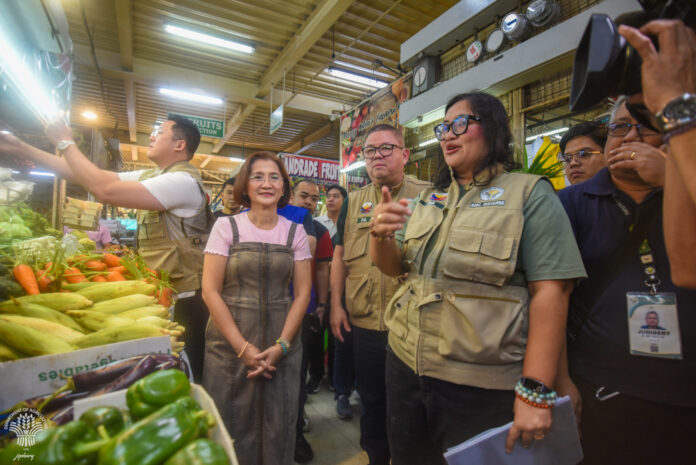The Department of Agriculture (DA) and the Department of Trade and Industry (DTI) have intensified their joint Bantay Presyo market monitoring operations across the National Capital Region (NCR) to curb overpricing and protect consumers.
This inter-agency initiative aims to ensure compliance with the maximum suggested retail prices (MSRP) program for essential food items, particularly rice and pork. Bantay Presyo market monitoring inspection teams composed of key officials and representatives from the DA, DTI, Philippine National Police (PNP), concerned local government units (LGUs), Bureau of Animal Industry (BAI), National Meat Inspection Service (NMIS), and Food Terminal Inc. (FTI) have been mobilized to inspect various public and private markets, particularly in Metro Manila.
According to the DA, the following MSRPs are currently in effect across NCR markets: Pork Liempo – ₱380.00 per kilo; Pork Kasim/Pigue – ₱350.00 per kilo; and Imported Rice (5 percent broken) – ₱45.00 per kilo.
Leading one of the recent Bantay Presyo market monitoring operations was DA assistant secretary for agribusiness, marketing, and consumer affairs, Bebang Guevarra, who personally checked on rice and meat retailers in various markets in Metro Manila.
“During our market visit, we observed that liempo was being sold at ₱420 to ₱440 per kilo, and kasim/pigue at ₱370 to ₱380, prices that clearly exceed the MSRPs. This is alarming, especially since the farmgate price of pork remains around ₱250 to ₱255,” said Guevarra.
Hog producers during consultative meetings with agriculture secretary Francisco P. Tiu Laurel Jr. have pledged to keep farm gate price at a maximum P230 a kilo to put a lid on retail prices of pork.
While strict enforcement is necessary, Guevarra said that the primary objective of the inspections is to foster cooperation among market vendors. She urged retailers to align their prices with government guidelines, especially since certain delivery costs have already decreased.
As part of the Bantay Presyo operations, Guevarra, together with NMIS and BAI officials, also leads a comprehensive review of the pork value chain, from farmgate pricing and slaughterhouse operations to trading, retail, and end-consumer pricing. The initiative seeks to identify key cost drivers at every stage and recommend policy and market interventions that will benefit both producers and consumers.
“The solution must be systemic. We are analyzing the value chain closely to determine where excessive mark-ups may be occurring and to ensure fair practices throughout the supply chain. The government is also exploring options to supply meat directly to the markets,” she explained.
She also reiterated the importance of transparent pricing. “Price tags are not optional, they are a fundamental consumer right. Proper labeling promotes transparency and builds trust between vendors and customers,” she added.
LGU officials expressed their support for the initiative. San Juan Agora Market administrator Arthur Alfredo Aquino said, “We are fully committed to the DA and DTI’s consumer protection efforts. We will religiously remind our vendors to comply with price-tagging and MSRP regulations.”
Agri chief Tiu Laurel has reaffirmed the DA’s commitment to safeguarding both consumers and producers. “These Bantay Presyo market monitoring inspections are part of our broader efforts to ensure that essential food items remain affordable and accessible to the consuming public, while also supporting the welfare of our farmers and producers,” he said.
The Bantay Presyo market monitoring teams from the DA, DTI, and PNP will continue conducting market inspections to ensure fair pricing of basic necessities and prime commodities. Consumers are encouraged to report incidents of overpricing or pricing abuses directly to the DA and DTI.







